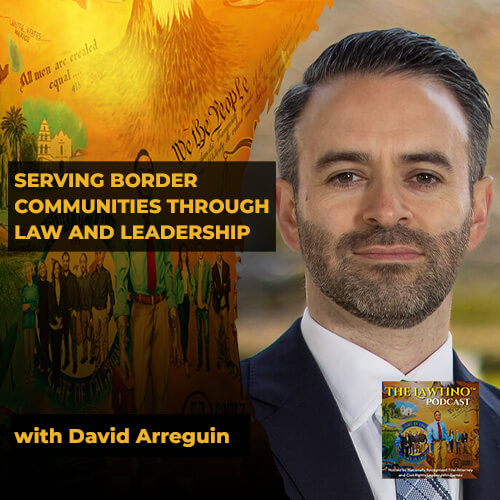Child Sexual Assault and AB 218—Code of Civil Procedure 340.1
This article will provide a background and outline some important facets of the new law AB 218 from the experienced California child sexual abuse lawyers at Gomez Trial Attorneys.
In 2002, the California Legislature passed childhood sexual abuse legislation Senate Bill No. 1779 creating a one-year “window” into the legal system for claims of child sexual assault that had been unavailable due to statutes of limitations. Per the Los Angeles Times, in 2003, an estimated 850 Catholic clergy abuse victims and 150 other plaintiffs sued churches, the Boy Scouts, and other institutions in California. The 2003 law allowed claims against entities that “failed to take reasonable steps and implement reasonable safeguards to avoid future acts of unlawful sexual conduct by the employee or agent, including, but not limited to, preventing or avoiding placement of that person in a function or environment in which contact with children is an inherent part of that function or environment.”
Now, nearly eighteen years later, San Diego’s Lorena Gonzalez authored Assembly Bill 218 providing another “window” for victims of childhood sexual assault to bring forward a lawsuit passed 62-0 in the California Assembly. A month later, on October 13, 2019, Governor Gavin Newsom signed the legislation into law creating a new opportunity for victims of childhood sexual assault to hold perpetrators and related entities liable. AB 218 is now codified within California Code of Civil Procedure § 340.1.
CCP 340.1 – Background and Policy Considerations
Assemblywoman Lorena Gonzalez explained the purpose of AB 218,
The idea that someone who is assaulted as a child can actually run out of time to report that abuse is outrageous. More and more, we’re hearing about people who were victims years ago but were not ready to come forward to tell their story until now. We shouldn’t be telling victims their time is up when in reality we need them to come forward to protect the community from future abuse.
Joelle Casteix, a successful plaintiff against the Catholic Church in 2003 and a board member of the Zero Abuse Project, was the main survivor of childhood sexual abuse to testify in support for passage of AB 218. Ms. Casteix advocated,
For almost 16 years, the courthouse doors have been closed to California’s adult survivors of childhood sexual assault—especially survivors from impoverished and immigrant communities. Today, Governor Newsom and Assemblywoman Lorena Gonzalez changed the balance of power. Survivors can finally help protect kids by ensuring that what happened to them does not happen to another child.
While AB 218 did not specifically target any particular entity or individual group of perpetrators of childhood sexual assault, recent historical revelations about the cover-up of widespread child sexual abuse within the Catholic Church has triggered widespread support throughout several states to pass laws opening the statute of limitations for any victim of childhood sexual assault.
The public eye first became aware of widespread sexual abuse within the Catholic church in 2002, when journalists from the Boston Globe unveiled a massive cover up scheme in the local diocese. The journalists discovered that sexual abuse committed by priests was routinely covered up, and rather than remove priests from office, the Church would move them to a new parish.
The Catholic Church was not the sole concern of the drafters of AB 218. Numerous entities and organizations, including the Boy Scouts of America, Jehovah Witnesses, private and public schools, youth sports administrations, and other organizations, are facing forthcoming litigation for failures to “to take reasonable steps or to implement reasonable safeguards to avoid acts of childhood sexual assault.” (CCP 340.1(c).)
For More Information Contact Our Sexual Assault Lawyers Today
Code of Civil Procedure 340.1—A Breakdown
AB 218, now codified within California Code of Civil Procedure § 340.1, is readable and understandable. Below are some of the important new facets of CCP 340.1. Please note, there are additional new procedures and processes outlined in CCP 340.1 not fully discussed below.
Childhood Sexual Assault—New Definition
AB 218 “expanded the definition of childhood sexual abuse, which would instead be referred to as childhood sexual assault.” (Legislative Counsel’s Digest, AB 218 (Gonzalez).) The actual change in CCP 340.1 related to the switch from childhood sexual “abuse” to “assault” is found in CCP 340.1(d), adding to the existing definition the inclusion of sexual conduct as defined in paragraph (1) of subdivision (d) of Section 311.4 of the Penal Code. Penal Code § 311.4(d)(1) specifically uses the term “sexual conduct” and includes acts of masturbation, exhibition of genitals or private parts, or any lewd and lascivious acts as defined in Penal Code § 288. In addition, while seemingly intuitive, the statute clearly states the actual act of childhood sexual assault must occur prior to the plaintiff’s 18th birthday.
Opening of the Statute of Limitations for 3 Years
The headliner of AB 218 was the opening of the Statute of Limitations for 3 years starting on January 1, 2020. CCP 340.1(q) provides, in relevant part,
Notwithstanding any other provision of law, any claim for damages described in paragraphs that has not been litigated to finality and that would otherwise be barred as of January 1, 2020, because the applicable statute of limitations, claim presentation deadline, or any other time limit had expired, is revived, and these claims may be commenced within three years of January 1, 2020.
Importantly, the opening of the statute of limitations for victims of childhood sexual assault not only addresses statutes of limitation, but the “claim presentation deadline,” affirming public entities are not exempt from the opening of a 3-year window for victims to bring a lawsuit.
Statute of Limitations Increased to Victim’s 40th Birthday
Prior to the AB 218 amendments, CCP 340.1 required a plaintiff to file a lawsuit for childhood sexual abuse within 8 years of the date the plaintiff reached the age of 18, or within 3 years of the date the plaintiff discovered or reasonably should have discovered injury occurring due to sexual abuse. For practical purposes, this meant a plaintiff had until his or her 26th birthday to bring a lawsuit for childhood sexual abuse, or properly plead dissociated feelings from abuse and that the discovery of psychological injury was connected to the abuse within 3 years of counseling. (See Lent v. Doe (1995) 40 Cal.App.4th 1177.)
The California Legislature significantly expanded the time period from 8 years to 22 years to bring a lawsuit for childhood sexual assault. Put simply, this increase of 14 years means a plaintiff now has until the age of 40-years-old to bring a lawsuit for childhood sexual assault. Even when January 1, 2023 arrives, and the 3-year window of the unconfined statute of limitations closes, a plaintiff up to 40-years-old will be permitted to file a lawsuit for childhood sexual assault. The 3 years to bring a lawsuit under CCP 340.1(a) where the plaintiff discovered or reasonably should have discovered injury occurring due to sexual abuse after the age of 40-years-old increased to 5 years from the date.
Certificates of Merit
CCP 340.1(f) provides a requirement that “every plaintiff” 40-years-old or older at the time of filing a lawsuit must additionally file “certificates of merit.” The certificates of merit is written in the plural for a reason—two separate certificates are required. CCP 340.1(g) outlines the requisite information that must be included in the certificates of merit.
- First, the attorney for the plaintiff must file a declaration affirming (a) the attorney has reviewed of the facts of the case, (b) the attorney has consulted with a mental health practitioner who the attorney believes is knowledgeable about the case, and (c) the attorney has concluded there is a “reasonable and meritorious cause for the filing of the action.”
- Second, the mental health practitioner must file a declaration affirming (a) the mental health practitioner is licensed to practice in California and is not a party to the action, (b) the practitioner is not treating and has not treated the plaintiff, (c) the practitioner has interviewed the plaintiff, and (d) the practitioner has concluded based on the facts and issues that in the “practitioner’s professional opinion” there is a reasonable basis that the plaintiff had been subject to childhood sexual abuse. (Note—abuse is not a typo as the word “abuse” is published in CCP 340.1(g)(2) despite the definition change discussed above.)
- Lastly, if an attorney is unable to obtain a consultation from a mental health practitioner due to statute of limitations issue, a certificate of merit must be executed within 60 days after filing the complaint.
Treble Damages Allowed for Cover-Up
Tom McCarthy’s film Spotlight revealed an ongoing cover-up by the Boston Archdiocese of serious patterns of sexual abuse of children by Catholic priests in Massachusetts. Further investigations, including the 2018 Pennsylvania Attorney General Diocese Victims Report, demonstrated institutional failings of covering up acts of sexual assault where perpetrators were able to access multiple victims despite prior complaints and reports.
AB 218 directly addressed the appalling act of covering-up or hiding evidence of child sexual assault by including a provision allowing for treble damages. Treble damages permits the court to triple the amount of damages to be awarded to the plaintiff. CCP 340.1(b) now provides that a person who proves his or her sexual assault was a result of a cover up may recover up to treble damages against a defendant who is found to have covered up the sexual assault. The term “cover up” is defined in CCP 340.1(b)(2) as “a concerted effort to hide evidence relating to childhood sexual assault.”
For More Legal Help Turn to Gomez Trial Attorneys
For more legal assistance review our practice areas. If you or loved one has been effected by sexual violence then don’t hesitate, report the incident and contact our skilled sexual abuse lawyers today with a phone call 619.237.3490.







